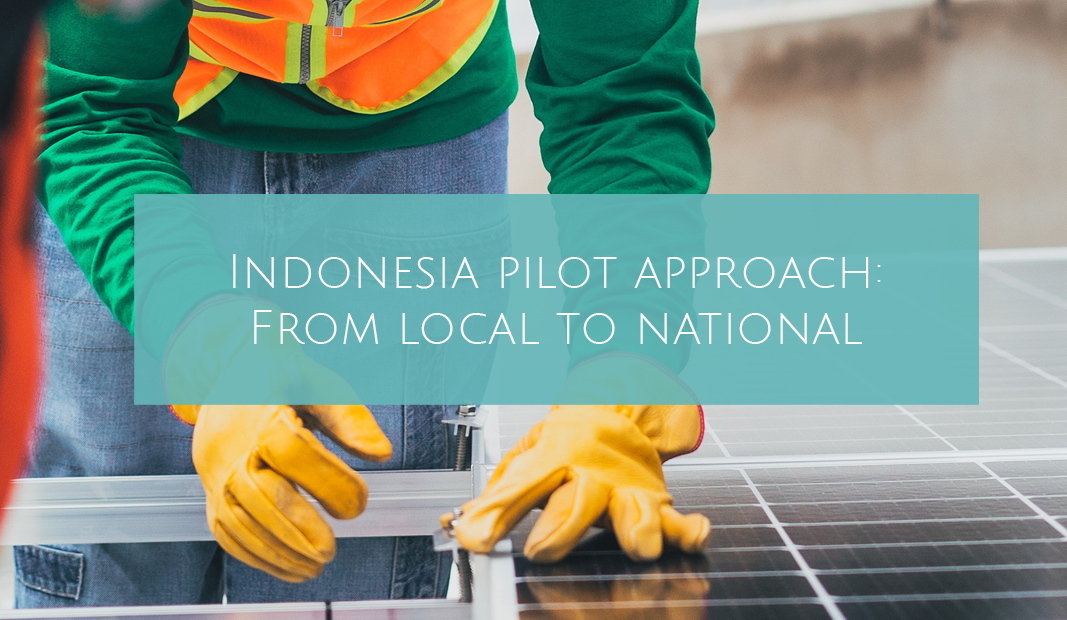GBPN Supports Indonesia emission reduction target through bottom-up approach
GBPN is supporting the Ministry of Energy and Mineral Resources (MEMR) Indonesia to reduce emissions from the building sector. MEMR is one of key ministries that is leading the achievement of Enhanced Nationally Determined Contributions (ENDC).
The partnership with MEMR started in August 2022 and aims to advance nationwide reform on energy efficiency for the buildings sector. In order to effectively deliver the reform, GBPN proposes a bottom up approach where the work is built in two pilot cities, namely City of Balikpapan and South Tangerang.
 GBPN Project Manager Raphael Anindito said the partnership was an innovative attempt to push reform in the buildings sector, and MEMR should be applauded for endorsing the bottom up approach.
GBPN Project Manager Raphael Anindito said the partnership was an innovative attempt to push reform in the buildings sector, and MEMR should be applauded for endorsing the bottom up approach.
“Building a case at the local level to draw lessons for nationwide reform is a fresh approach for Indonesia building reform strategy,” Mr. Anindito said.
“It is exciting how MEMR is fully endorsing the approach by moving fast in starting the pilot project.”
Evidence-based recommendations are key for developing roadmap
The partnership with MEMR has two components; first, GBPN will assist the pilot cities to develop a city-level roadmap of energy efficient building. This will be done through collecting data on building energy consumption at cities level and based on that, an energy baselining model of the cities is created.
The city’s energy baseline model is used to inform the development of key policy opportunities and actions written within the city-level roadmap of energy efficiency. Second, a broader data collection is scaled-up to other cities to develop national baselining that will be used to craft a policy reforms plan for building decarbonisation at a national level.
 MEMR Deputy Director for Technical Assistance and Cooperation of Energy Conservation, Hendro Gunawan, said the approach proposed by GBPN is aligned to MEMR decarbonization agenda, especially the way it emphasizes the evidence-based and bottom-up process.
MEMR Deputy Director for Technical Assistance and Cooperation of Energy Conservation, Hendro Gunawan, said the approach proposed by GBPN is aligned to MEMR decarbonization agenda, especially the way it emphasizes the evidence-based and bottom-up process.
“MEMR is at the forefront on addressing high carbon buildings sector, and we believe the national policy reforms plan for buildings sector needs a cities baselining (evidence based) as a base for developing city-level roadmap,” Mr Gunawan said.
“The experiences and lessons from cities baselining and actions implementation will be reference and example for other cities to adopt, and for national government to identify the kind of enabling environment needed to accelerate nationwide buildings decarbonization agenda.”
Local experts in for the long haul
Buildings decarbonisation requires massive and evidence-based interventions; these will require a long journey as well as support and commitment from multiple parties.
GBPN is committed to providing full support to MEMR to launch cities-led buildings decarbonization actions based on extensive locally gathered evidence. As part of this collaboration with MEMR, two pilot cities, Balikpapan and South Tangerang, GBPN have already actively engaged in this project, which will help to provide case study examples for other regions to follow.
Share This Story, Choose Your Platform!
Stay in touch with how we’re transforming the buildings sector
GBPN runs innovative building policy reform programs in key regions around the world that aim to tackle the climate emergency by decarbonising the buildings sector. Stay up to date with our newsletter.
Stay in touch with how we’re transforming the buildings sector
GBPN runs innovative building policy reform programs in key regions around the world that aim to tackle the climate emergency by decarbonising the buildings sector. Stay up to date with our newsletter.







